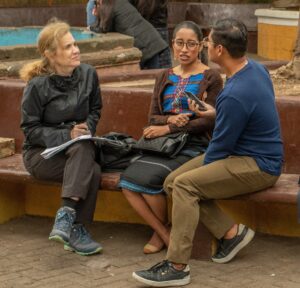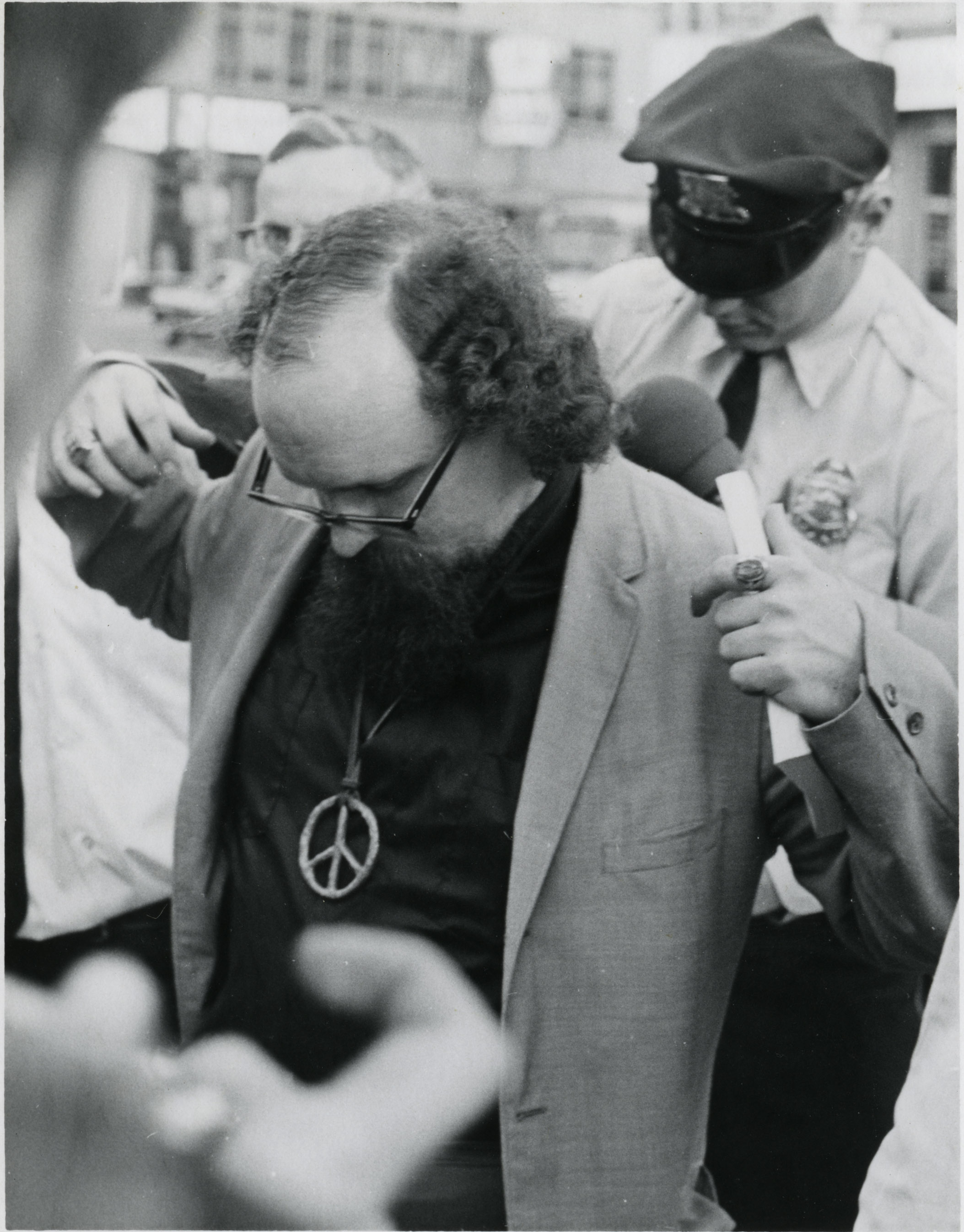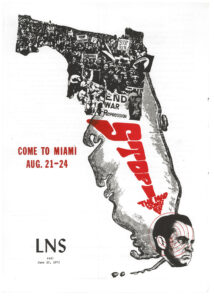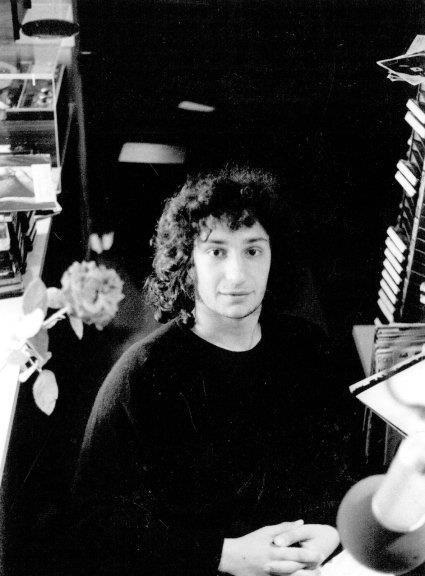 Julia Lieblich seated (left) on a bench with a notebook listening to Kaqchikel Maya actress Maria Mercedes Coroy (center) and unidentified person
Julia Lieblich seated (left) on a bench with a notebook listening to Kaqchikel Maya actress Maria Mercedes Coroy (center) and unidentified person
Julia Lieblich was a human rights journalist and author who spent much of her career exploring the effects of war, abuse, trauma, war, despair, and terror to shed a light on these horrific acts in an effort to make the world a better place. Through reporting and books, she tackled difficult subjects like the wars in Bosnia and Afghanistan, conflict zones in Guatemala and Sierra Leone, the truth and reconciliation commission in South Africa, and clergy sex abuse in Chicago. Lieblich had deep empathy for her subjects and stayed in touch with many of them long after her stories and books were published. She became a godmother to five children in San Antonia Aguas Calientes, Guatemala and visited her adopted family twice a year over the course of 25 years. As a religion reporter and Jewish woman, she explored conflicts in Judaism, Islam, Christianity, and Catholicism. She taught writing and was an assistant professor at Loyola University Chicago, a research fellow at Northwestern University Law School’s Center for International Human Rights, and a scholar-in-residence at the Newberry Library in Chicago.
Lieblich was born on April 25, 1958 in Long Island, NY. Later, her family moved to St. Louis, MN. She attended the Interlochen Arts Academy boarding school in Michigan and received her Bachelor’s degree in literature at Washington University and a master’s in theological studies from Harvard Divinity School. During her career as a journalist she was a religion writer for the Chicago Tribune and the Associated Press, and published news and feature articles in The New York Times, Los Angeles Times, The Washington Post, Boston Globe, Miami Herald, Plain Dealer, Time, Life, Ms., Fortune, The Nation, American Health, American Photo, Harvard Business Review, Harvard Divinity Bulletin and Agni literary review. She also wrote op-eds for the Los Angeles Times, Chicago Tribune, The Washington Post and others. In her twenties, she oversaw the annual billionaire’s issue for Fortune by day, while writing about nuns who had taken a vow of poverty by night. Her first book, Sisters: Lives of Devotion and Defiance about cloistered Roman Catholic nuns, was originally published as an article in the New York Times Magazine. Her other book, Wounded I Am More Awake: Finding Meaning After Terror which was co-authored with Esad Boskailo, about Bosnian concentration camps, was published in 2012.
Lieblich struggled with a bipolar disorder for much of her life and in November of 2023, feeling overwhelmed by “wars that are killing children, a refugee and housing crisis, the murder of young people on our own streets, the increasing threat of nuclear war and climate change”, she ended her own life. In her final note to friends, she stated that she could no longer handle more sadness, death and destruction and “just wanted the pain to stop”. Her ashes were scattered on the grave of her goddaughter, Kendy Carmona outside of Antigua in Guatemala.
Lieblich’s papers document the working life of a career journalist. Besides copies of many, if not all, of the articles she published, there are letters, notes, research materials, drafts, and interview transcripts gathered throughout her life. The collection also contains a book proposal that Lieblich wrote in 2023 before she died called The Sacred in the Ordinary: Spiritual Teachers of a Secular Traveler that was intended to describe her spiritual journey as a secular woman as she encountered remarkable teachers from many traditions. It was intended to be a “book of stories that address the questions and themes that have animated my quest for meaning during my thirty years as a secular religion writer.” In addition, the collection contains personal photographs, artwork, and audio and video recordings of interviews.
Gift of Dan Gauger, 2024





